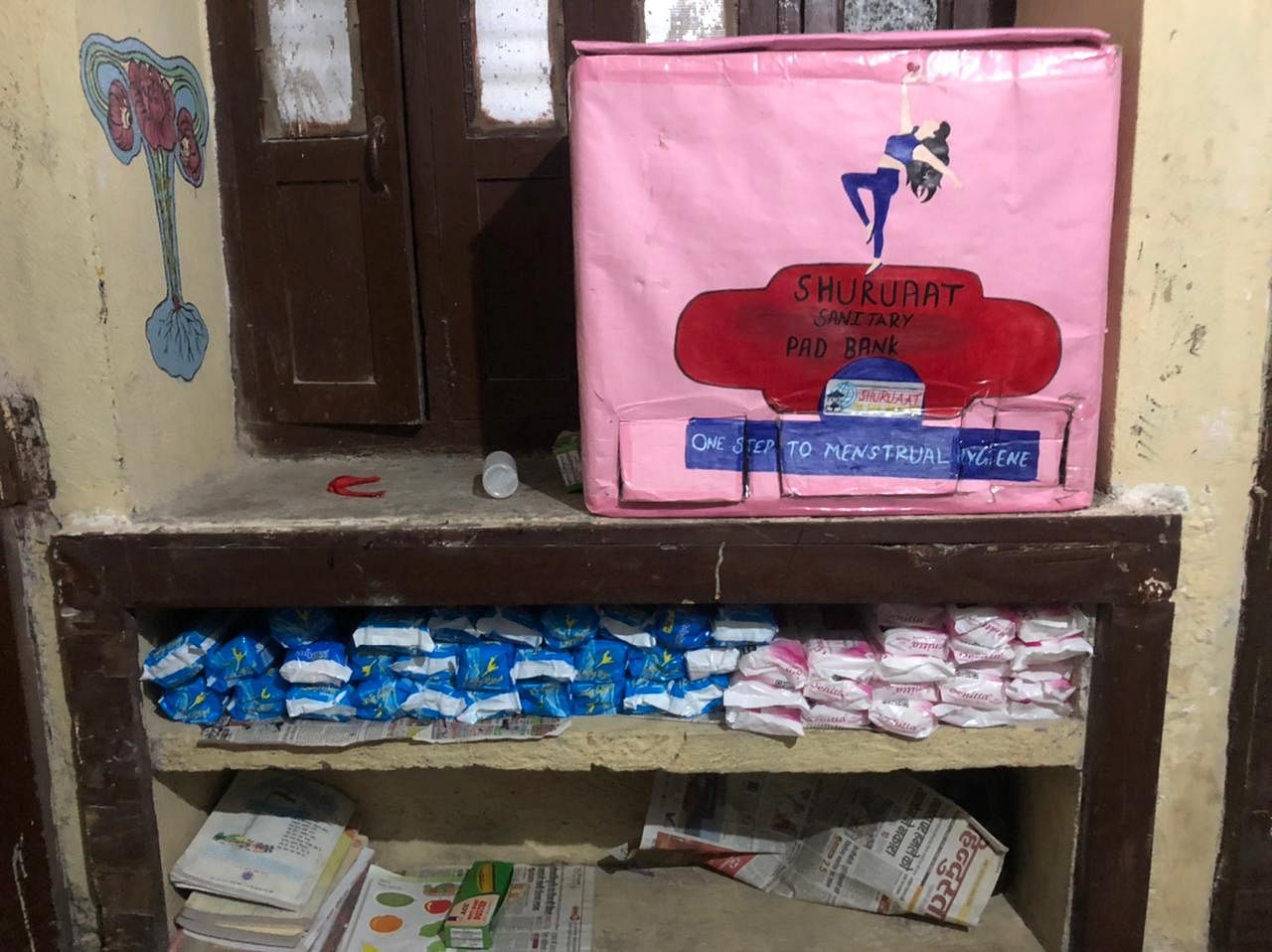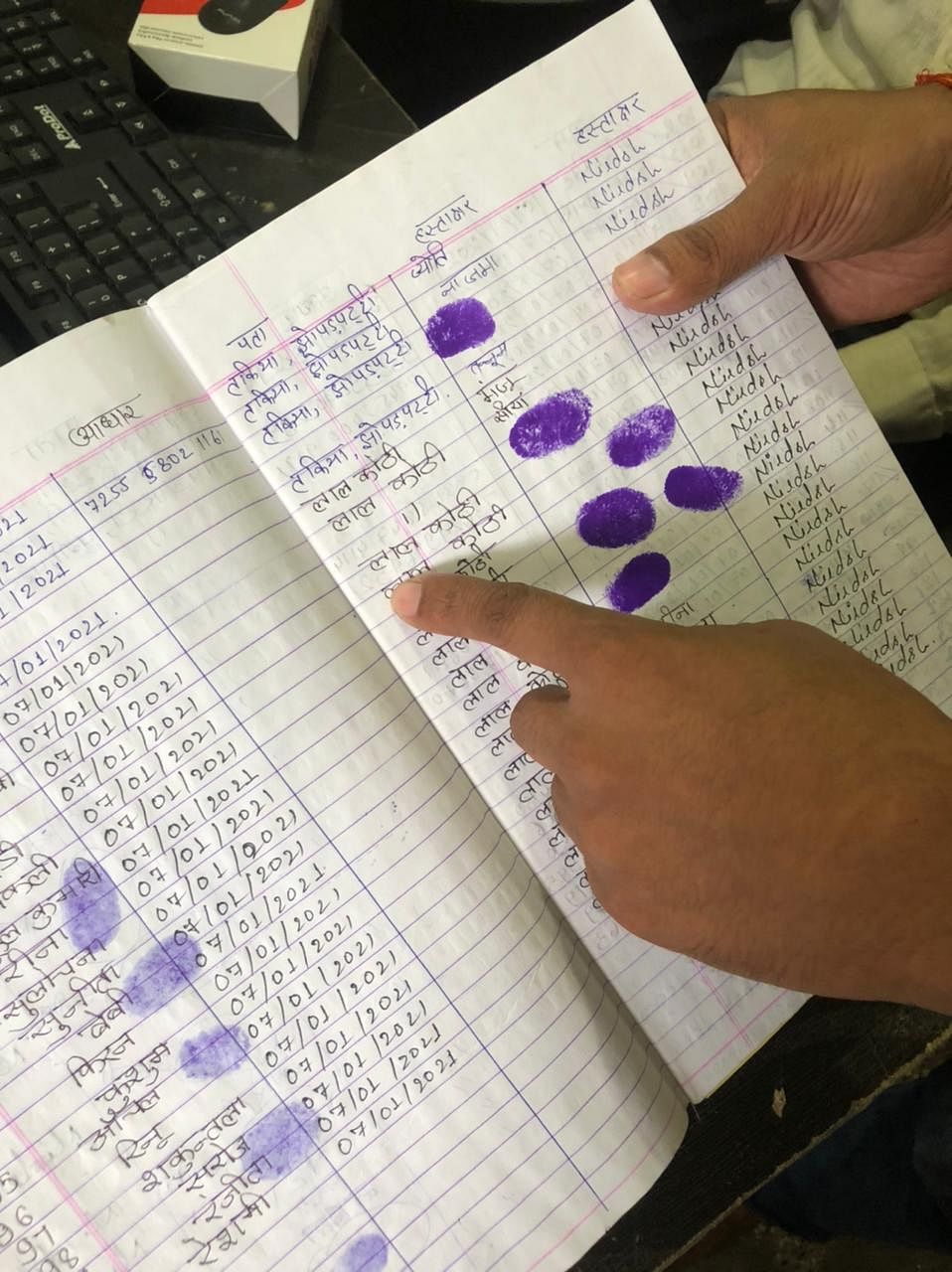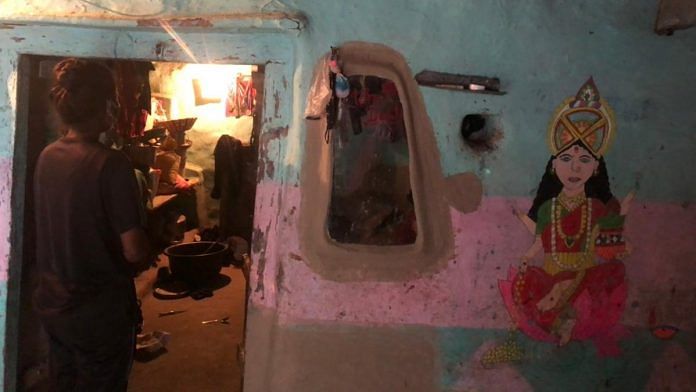Prayagraj: For Sarita Bansal, 41, a daily-wager who lives in a slum on the outskirts of Prayagraj, rags had always been the undisputed resource during “that time of the month”, or menstruation. It is a practice she passed on to three of her four daughters who have already hit puberty.
Sanitary napkins, she told ThePrint at her kutcha house on a rainy day this week, were out of the question. “It is so costly. Who would pay Rs 30 per month?” she said, under a leaking polythene roof.
“We are already 4 menstruating women in the house. It means we have to spend Rs 120 a month. My next daughter will be hitting puberty in a year or two. That means we will have to spend at least Rs 150 a month.”
“I earn Rs 500 in 15 days by making dalia (wooden baskets) and my husband is out of work on most days. The lockdown made it more difficult as we did not have any means to earn our bread.”
A neighbour of Bansal at the slum, known locally as ‘Alopi Bagh Chungi’, echoed her concerns. “We have been used to using clothes for ages now. It’s uncomfortable in the beginning but we learn to adjust to it with time,” she said, adding that her daughter had many complaints about it.
But the situation is changing for Bansal, her neighbour, and around 300 women from slums across Prayagraj — Lal Kothi, Lookarganj, Tularam Bagh, Hari Nagar Basti and Namani Basti — with the emergence of the ‘Shuruaat Pad Bank’.

An initiative of a group of current and former Allahabad University students, the bank — set up in January 2021 — offers free pads to beneficiaries. All they have to do is reach out to them around their expected menstruation dates. Run on donations, the bank is an offshoot of an education initiative for the underprivileged — ‘Shuruaat Ek Jyoti Shiksha Ki’ — founded in 2016 by Abhishek Shukla, 30, who did his postgraduation in social work from Allahabad University.
“During the lockdown period (at the time of the second wave), the bank really became a lifeline for us,” said Renu Devi, one of the beneficiaries.
Also Read: Less than 20% menstruating girls & women in India use pads. Here’s how to overcome barriers
A hush-hush topic
The slum where the Bansals live accommodates around 3,000 people from the Scheduled Castes. Most residents are daily-wage labourers who alternate between different kinds of work — from rag-picking to plastic collection and serving as waiters at weddings.
The two-room Bansal home has walls caked with dung that crack during heavy rain. They don’t have a toilet, much like most of their neighbours.
“We go outside in the dark,” said Nandini, 15, one of Sarita’s daughters, pointing to a place at a distance, when asked about access to basic hygiene.
Before the pad bank came in, the awareness about menstrual hygiene was next to negligible as well.
Menstruation, which is associated with many myths in Indian households, remains a taboo subject for many people. The hush-hush treatment given to the biological function forces many girls and women to resort to unhealthy measures like rags to address the bleeding.
Menstrual hygiene is important not just for a girl’s physical health — poor hygiene practices may make her vulnerable to infections — but also her confidence and mobility. As UNICEF points out, it may affect her attendance in school as well as participation in community life.
Since 2018, as part of a central government initiative, sanitary napkins have been given out at Jan Aushadhi Centres around the country. The pads are priced at Re 1 apiece. But the women at Alopi Bagh Chungi that ThePrint spoke to said they had never heard of the scheme.
It was this lack of awareness that Abhishek and his fellow volunteers sought to tackle with the bank.
Also Read: India’s workplaces need to understand menstruation better. Period
‘We have come a long way’
The idea for Shuruaat Ek Jyoti Shiksha Ki, Abhishek said, struck him after a chance encounter.
“One day, I was at a red light and spotted a young girl. I asked the girl, who was 8 years old, why she didn’t go to school. She replied that she had to look after her 5-year-old brother,” Abhishek added. “I was so bothered by the thought of an 8-year-old girl looking after her 5-year-old brother, I started this education initiative and got it registered the same year.
“Within 6 months, more students joined the initiative (as volunteers) and started teaching the kids. We took classes in open spaces such as parks,” he said. “As the pandemic hit the country, we had to rent a two-storey building so that the kids don’t drop out. We also take care of their tuition fees.”
As of now, Abhishek said, 150 students — 80 of them girls — are enrolled with the group. Out of the 80 girls, 50 are also beneficiaries of the pad bank.
The pad bank emerged when the volunteers noticed the lack of awareness regarding menstrual hygiene among their girl students and their families. A monthly workshop followed, where they sought to disseminate information about menstruation and the requisite hygiene practices.
Two of the volunteer teachers, Anjali and Shalini, both aged 28, also started a conversation about periods in the classrooms.
“From not mentioning the word periods in our day-to-day conversation, to asking for the pads without any hesitation, we have come a long way,” said Anjali.
“But we faced rigidity from the community. They reacted to the menstrual talk as if it is some alien concept,” she added. “It was justified on their part as the first thing that comes to their mind is earning their bread and butter.”
Abhishek said the pad bank was the result of months of continuous efforts. “The word spread fast and we have women from different slums as beneficiaries,” he added.
The biggest challenge for the volunteers, he said, was to maintain consistency. “We did not want women to use it once and then go back to age-old practices in the absence of free pads. We maintain records and do follow-ups. According to our registered numbers, most women have had access to menstrual hygiene for six months at a stretch now,” he added.

“We look forward to the day when Nandini’s sister does not have to use a cloth instead of a pad,” he said. “We are working in that direction. With individual support, we are able to sustain the bank.”
(Edited by Sunanda Ranjan)
Also Read: On my first day of Covid ICU duty, I bled in my PPE. Periods happen, even in a pandemic



